#and/or communicating an emotion
Explore tagged Tumblr posts
Text
I love the rhyming on ttpd. can only think of two examples currently but I know there’s more.
#the dancing phantoms on the terrace do they get second hand embarrassed#is e v e r y t h I n g#but also I can’t stop thinking about:#you. look. like. taylor swift. in this light—we’re lovin’ it#like just the flow. the cadence. not even just the rhyme but#her ease with language and playfulness with it and all the little pockets and corners of so many songs#even ones you think you don’t like. settle in with time!#like the thing about taylor is that she is VERY much a poet#in that some of her genius/way with words is innate#and the images and stuff she uses the turns of phrase can feel so garish and embarrassing on first listen#they JAR#but honestly I think it’s because she is truly …. new? she is doing something NEW#and the shock and outrage that always goes with new things is always present with a Taylor album#and I think she’s drawing on so much from the past to write but she is so deeply rooted in the present cultural moment#so it’s so easy to dismiss her writing on first glance as like. idk a college girl’s idea of poetry#as being too Stark or Melodramatic.#she loves OBVIOUS imagery and extremely dramatic ones too#but she isn’t actually just throwing stuff at the wall#because pretty much always. it starts to land and soften and settle#and the image she’s chosen has done its job of drawing you into a world#and/or communicating an emotion#and sometimes it’s so upsetting. like. get me out of the bedroom with Matty Healy taylor!!!!!!!!!! but. the art is art-ing!#I guess is what I’m saying. she’s good at this it isn’t just hype#but some of it really is that she’s taking us places we might not want to go or are so quick to pass judgment on#as being unworthy of a song or more importantly a poem. but present art HAS to do that#and does do it!!!!!! idk I am just. musing
22 notes
·
View notes
Text
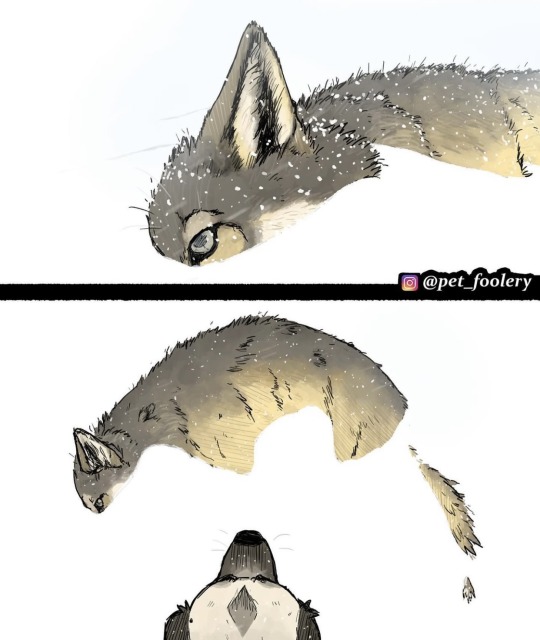
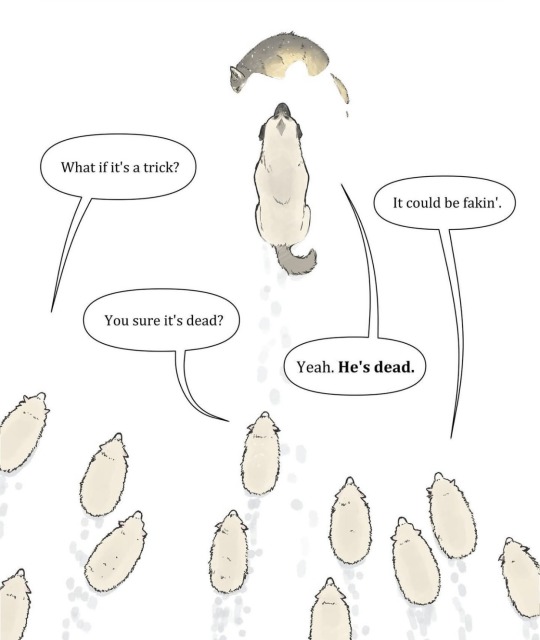
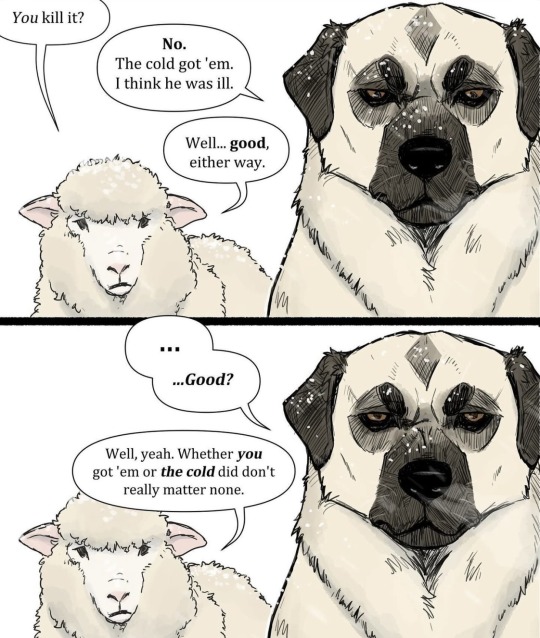
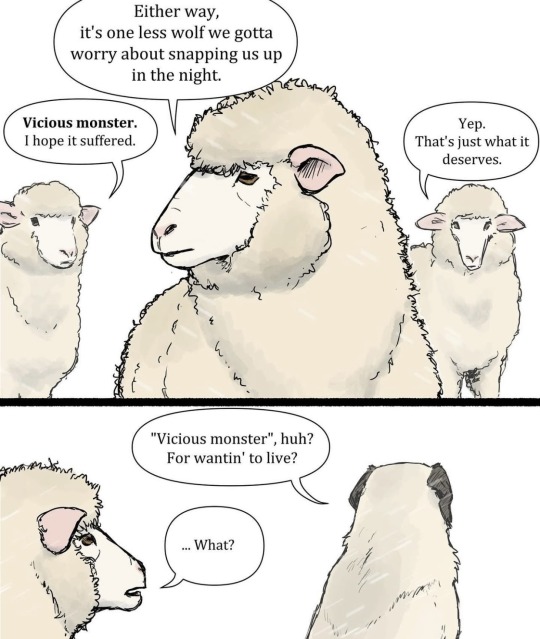
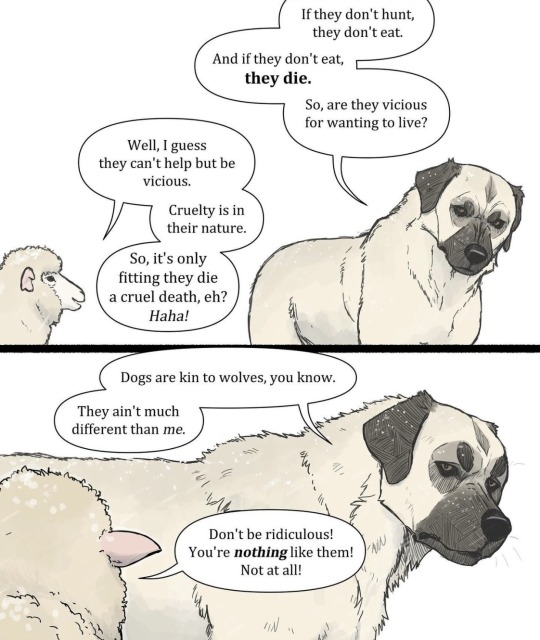
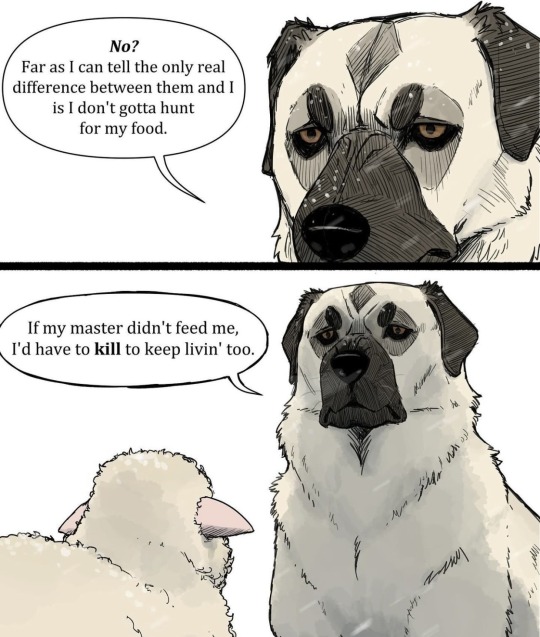
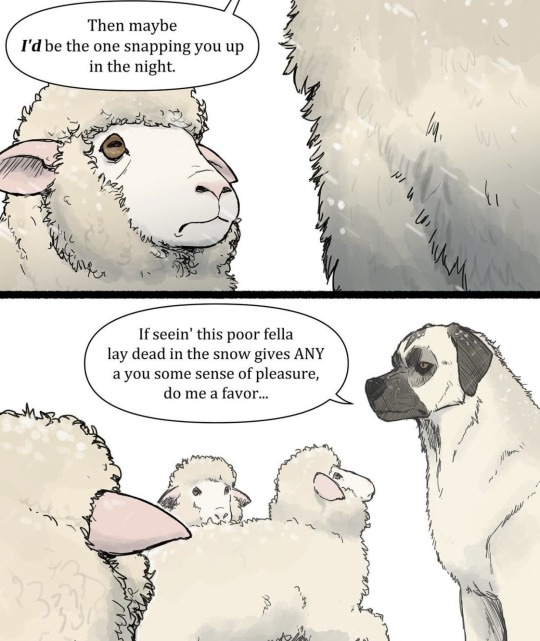
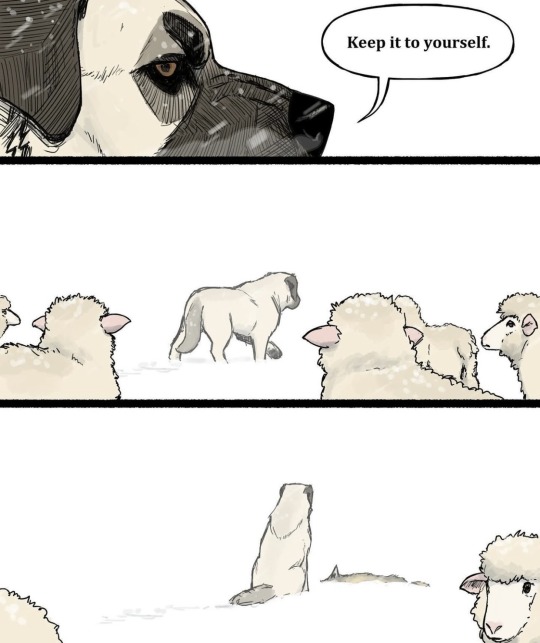
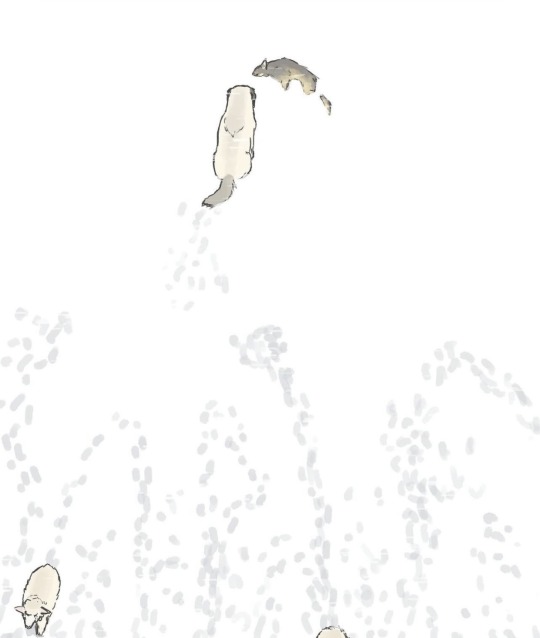

© pet_foolery
#tw animal death#art#artist#artblr#artists#art community#comics#comic#spilled ink#spilled words#spilled writing#spilled emotions#prose#spilled feelings#spilled heart#whump#angst#whumpblr#dog#dogs#wolf#wolves#animals#art blog#art gallery
31K notes
·
View notes
Text
How to show emotions
Part VI
How to show insecurity
not holding/breaking eye contact
fidgeting
crossing their arms
trying to cover up their body
making themself seem smaller
playing with their hands
hiding their hands in their pockets
holding their head down
blushing
clearing their throat
biting their nails
biting their lips
nervous laughter
stuttering
How to show being offended
stiffening up
hard line around the lips
frozen stare
narrowing of the eyes
turning their head to the side
quickening heartbeat
turning red
making themself bigger, ready to fight
How to show compassion
gentle and soft smile
relaxed facial features
softening of their eyes
openly showing how they feel
leaning towards the other one
nodding along, not directly interjecting, but encouraging
deep breaths inbetween
gentle touches to comfort
How to show being pleased
big smile/grinning
laying head slightly to the side
moving one shoulder up
pursing their lips while smiling
very open body language
leaning back
More: How to write emotions Masterpost
If you like my blog and want to support me, you can buy me a coffee or become a member! And check out my Instagram! 🥰
#writing ideas#writeblr#creative writing#writers on tumblr#writing inspiration#writing community#how to show emotions
13K notes
·
View notes
Text
I need to stop giving a fuck for people who don't even think of me.
#sad thoughts#writing#writers on tumblr#love quotes#i love him#i miss you#poetry#love#relationship#quotes#spilled thoughts#spilled ink#spilled emotions#spilled heart#spilled writing#spilled words#spilled poetry#female writers#writing community#writerscommunity#creative writing#writers and poets#writeblr
7K notes
·
View notes
Text
the allergy i am seeing grow up around small talk in any form is troubling to me. do you know how to make friends with people in your physical environment? it typically starts with small talk. do you want to live in community? small talk. do you want to have the type of relationship with your neighbors where you can run over and borrow a battery for your smoke detector when it starts beeping at 10pm? small talk!! do you want leeway from your coworkers when you fuck up something small? you gotta be able to build a relationship and that's small talk, baybeee.
"but i don't need friends and i don't care about community!" okay, lone ranger, what about the people in your community who need you? "but i have social anxiety!" me too, bud! we simply must soldier on. making up lists of questions to ask people helps. and people are predisposed to be generous, i've found. even if you make some kind of mistake, what is this but the natural give and take of human interaction? nobody is perfect.
you were not put on this earth to live by yourself and then die. you need people and people need you. treat those around you with curiosity and generousness of spirit and you will gain so much goodwill in return.
#my pharmacist spotted me a weeks worth of meds once when mine were in a building closed for asbestos#because we'd been doing small talk for a couple of months and had a rapport#this is not emotional labor btw. in no way is 'doing small talk' emotional labor. dont say that.#edification#community is a garden
38K notes
·
View notes
Text
matt distracting heather in the shower so she stops asking about his bruises. putting on his glasses whenever their conversations get too serious. dismissing her concerns about his trauma. saying everything feels fake then plastering on a smile and a “i love you too”. we are so fucking back.
#HES SO BAD AT THIS*#*emotional vulnerability + communication skills + healthy relationships#i’m really interested to see what happens between him and heather because there is clearly some tension there and it’s like#where are they going with that.#because i feel like it could be done well but idk if i’m putting too much faith in the writers. i feel i see the direction they’re taking#but i’m not sure if they are aware of it#daredevil#daredevil born again#matt murdock#oh also#daredevil spoilers#daredevil born again spoilers
2K notes
·
View notes
Text

Shoutout to the self shippers whose f/os have helped them through their hardest times and made them feel like life is worth it.
Shoutout to the self shippers who need self shipping to get through rough days because it’s their way of coping.
Shoutout to the self shippers who turn to their f/os for comfort when they’re upset and need someone to hold onto.
Shoutout to the self shippers who feel stuck in depression but find their f/os to be their main source of happiness.
Shoutout to the self shippers who care so much about their self ships that it feels overwhelming sometimes.
Shoutout to the self shippers who can’t imagine their life without self shipping because it’s such an important part of who they are.

#selfship#f/o community#self ship#self ship community#selfship community#yume community#self ship positivity#selfship vent#selfship positivity#selfshipping#self shipping#seriously im so glad you guys found your f/os#and I’m glad I found mine#sorry for getting emotional on you guys
2K notes
·
View notes
Text
i dont know how taako got pigeonholed as the bottles up their feelings twin when taako after reaching a certain point of stress will just start shouting an emotional monologue about how upset he is, and lup was in love with someone she saw on a daily basis for several decades before saying anything about it and got lost in a cave for years because she didnt want to tell anyone about an extremely dangerous plan she made that concerned the fate of the entire world, for which her backup plan seemed to be "itll be fine dont even worry about it"
#taz balance#taz lup#taz taako#the repressing their emotions twins#they know how to do emotional communication theyre just choosing not to. strategically. its for a very smart reason they promise
2K notes
·
View notes
Text
i think its so funny when people take the way donnie acts at face value even though its a horrible lie because he's a horrible liar, while understanding leo is bullshitting very well despite him actually being GOOD at bullshitting. many such cases
#personal#rottmnt#although tbf its probably because with leo its unpacked more thoroughly in the movie#donnie is not a morally ambiguous emotionally unavailable bad boy. he is very sensitive actually#he's a little crybaby /aff#and like this isnt hidden. he isnt SECRETLY sensitive or secretly caring its very out in the open actually#he's not hiding it well AT ALL AND THEY ALL KNOW IT LMAOOOOOOOO#i think donnie's perception of himself is somewhat earnest and somewhat. not? he DEFINITELY thinks he's more evil than he actually is#BGHFHDHGJFHG#i think what causes him to lash out and struggle to communicate is his inability to articulate his feelings#they are just too big for him. like its the exact opposite of robotic#he cant force himself to give a fuck but when he DOES its too much#so he yells and lashes out or he shuts down completely#honestly i think the perception of him being too sensitive being a problem makes way more sense than the perception of him being 'robotic'#when it comes to struggles in how his family sees him at least#even in little ways you can see him take it pretty personally when he's insulted#he struggles to blow things off#and i think it would also explain his tendency to like. visibly calm himself down when he gets upset? its a thing he does a lot in the show#he desperately wants to destroy that perception of him because he's trying so hard to close himself off#he doesn't want to be the sensitive one that cant take anything. it especially works in line with his shell#it was a big inspiration for canary continuity tbh. donnie should struggle with being the sensitive one in fic more#mikey is more empathetic and he's more emotional but donnie's quicker to feel offended or take things personally#BACKED UP HEAVILY BY CANON#that 'you can be honest with me! no hard feelings' - 'he's lyinggggggg'#like he's not upset with them babying him as much as he is with them genuinely finding it frustrating that he can fall behind like that#and just cannot take shit like that. so he tries to pull back and not seem as affected as he is#theyre a very cuddly family but mind you they can be actually mean to each other like that!!
2K notes
·
View notes
Text
My experience carrying a stuffed animal with me at school every day
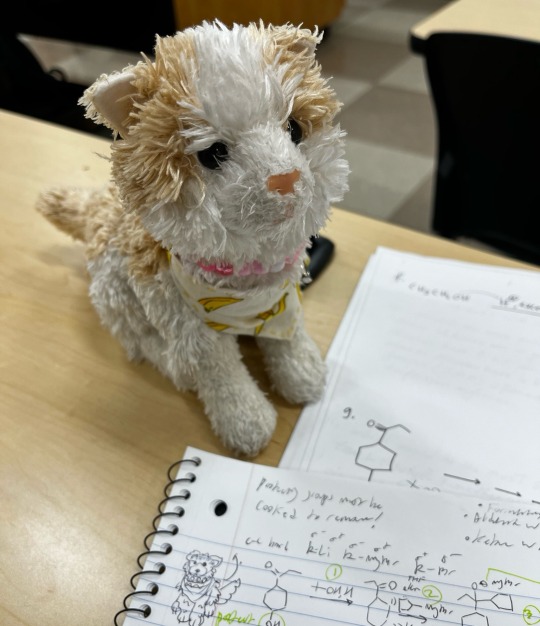
Wrapping up my first semester where I decided to be brave and carry a plushie with me, and figured I’d share my experience for anyone who wants to bring their plushies but may be nervous. I carried a small to medium cat plush in my hands and placed them on my desk every day.
I can safely say my experience has been nothing but positive!
- No one ridiculed or treated me unkind for it, any questions were posed with respect. I worried people wouldn’t take me seriously, but it’s not a problem I encountered.
- I made friends more easily and people asked me questions about my plush (name,brand,etc) quite often and seemed interested in my answers.
- None of my professors made any rude comments or told me to put them away. One asked if my plush was a recording device and why I had her but didn’t push further when I replied no, she’s just here because she makes me happy.
- Some professors made jokes, one pretended to punch my cat plush because he “doesn’t like cats” and another told me not to bring a black cat because it reminds him of a past cat he had and disliked. Nothing serious it was all in good fun from professors who frequently joked with other students as well.
- It made me very happy and comforted to have a plushie friend with me!! That alone makes it worth it.
I’m a fourth year college student, if you are in high school your experience may vary as you could face teasing from peers as I had before, but remember the world is so much kinder <3

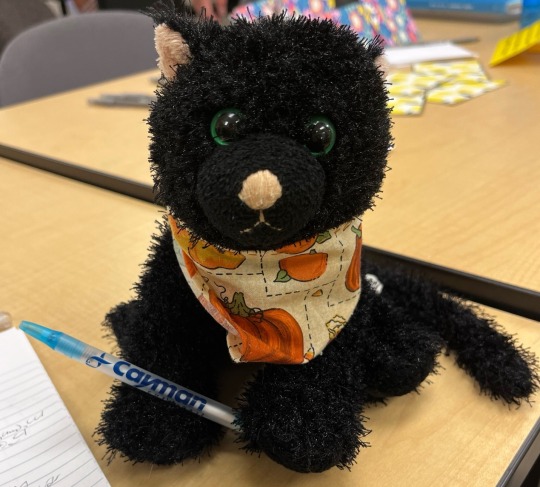
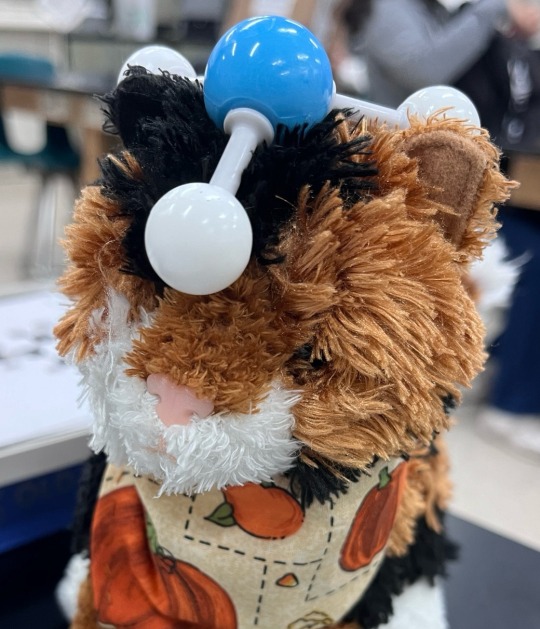
#age demographic of peers in interacting with was 18-40 so my experiences may differ from younger peers#but I would still encourage you to go for it if you’re thinking of bringing a plushie with you!#don’t let others control harmless things that make you happy#anyways thank you for reading <3#stuffed animals#plushie community#plushblr#essa#emotional support stuffed animal
2K notes
·
View notes
Text
You know what the worst part of having a dissociative disorder is, for me personally?
The emotional amnesia.
Your entire life feels like something that you watched on TV, rather than something that you actually lived through.
You know that some of the most horrific things imaginable have happened to you, and you feel nothing about it. Sure, the memories disgust you on principle, but you don’t feel anything.
It makes you question if anything that you remember is real. If that actually happened, shouldn’t it feel significant? Shouldn’t you be sad, angry, hurt, something?
And to top it all off, nobody understands. Not even yourself.
#Ironically thinking hard about all this creates a somewhat paradox#By stressing about feeling nothing you torture yourself into feeling bad things#Not about the memories just about yourself as a person#x Celyn#celyn speaks#dissociative disorder#dissociation#depersonalization#derealization#depersonalisation#derealisation#dissociative identity disorder#did system#osdd system#osdid#osddid#osddid system#system stuff#emotional amnesia#osdid system#cdd#cdd system#complex dissociative disorder#dissociative amnesia#flux speaks#flux takes#did symptoms#sysblr#cdd community#did community
2K notes
·
View notes
Text
furries everywhere i love you
#every time i see the crafts my community makes i get emotional i go crazyyyyy#someday i think we'll be remembered nicer as an art movement and not the way people hate us would have it be
1K notes
·
View notes
Text


Your Tears Won’t Fix Me. Art by roseshrubs on Instagram
#art#artist#artblr#artists#art community#painting#digital art#whump#goth#gothic#gothcore#horror#dark art#red#aesthetic#angst#dark academia#whumpblr#ruralcore#spilled feelings#art gallery#art blog#spilled heart#spilled emotions
4K notes
·
View notes
Text
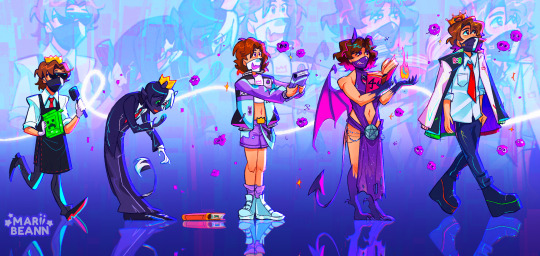
“Despite everything it’s still you”


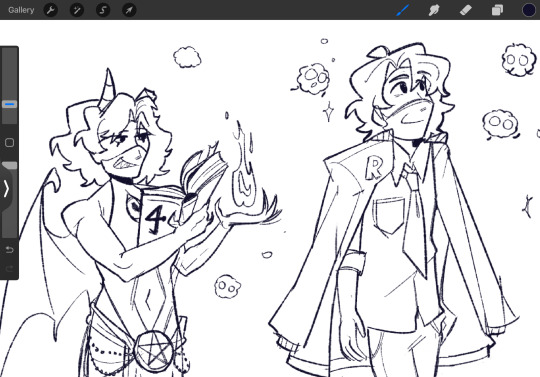
I liked the lineart a lot!!
#got emotional looking at old art and after recent stream#I love this community so so MUHC I can’t put into words#ALSO RANBOO BEING THE FIRST LIKE ON TWITTER WHEN I POSTED IS WILD TY#art#ranboo fanart#ranboolive#ranboo#procreate#silly little guy#my art
1K notes
·
View notes
Text
Green Flags in Communication 💚💬
"I want to know when I hurt your feelings."
This shows they are willing to understand and acknowledge the impact of their actions.
"I don't want you to feel alone in this."
This shows empathy and indicates that the person is supportive and does not want the person to deal with issues alone.
"I've been struggling with ___”
This demonstrates vulnerability and trust, as the person is open about their struggles.
"How have you been feeling about ___? I know it's been on your mind a lot."
This shows concern for the other person's issues or worries, showing that they are listening and care about what's important to the other person.
"I feel __ when you __; are you open to trying __ next time?"
This is an example of constructive communication.
"What do you need from me when this happens with your family?"
This shows awareness and sensitivity to the persons family dynamics and a willingness to provide support.
"I appreciate when you ___.”
Expressing appreciation is vital for positive reinforcement and acknowledging the efforts and qualities of the other person.
"I didn't handle that well."
This is a sign of self-awareness and accountability, recognizing one's own mistakes and being open to learning and growth.
"I'm sorry, I was wrong to say that. I'll try to be more mindful in the future."
Shows you are able to apologize genuinely and a commitment to improving behavior.
"Tell me more about that; I'm really interested in hearing your perspective."
Indicates a genuine interest in the other person's thoughts and feelings.
"I noticed you seemed a bit off today. Is everything okay?"
It shows you are attentive to the other person's emotional state and a readiness to provide support.
"I'm here for you, no matter what you need."
Offers unconditional support, creating a sense of security in the relationship.
"I love how passionate you are about your hobbies. It's inspiring to see."
Expresses admiration for the other person's interests.
"Let's work on a solution together. What do you think would be fair?"
Focusing on collaboration rather than conflict.
"I trust your judgment on this."
Trust and respect for the other person's decision-making abilities.
"Your happiness is important to me. Let's make sure you're taking time for yourself."
Prioritizes the other person's happiness and emphasizes the importance of self care.
"It's okay to feel that way. Do you want to talk about it more?"
Validates the other person's feelings.
"I appreciate how you handled that situation. You're really good at ___."
Praises specific strengths or skills, boosting the other person's self-esteem.
"I know we disagree, but I respect your point of view."
Acknowledges differences in opinion while still maintaining respect and understanding.
#communication#personal improvement#personal growth#personal development#self help#self awareness#self reflection#self improvement#healthy relationships#relationship advice#relationships#green flags#emotional intelligence#healthy relationship#health and wellness#mental wellness#mental health#level up journey#glow up tips#glow up#positive mindset#growth mindset
6K notes
·
View notes